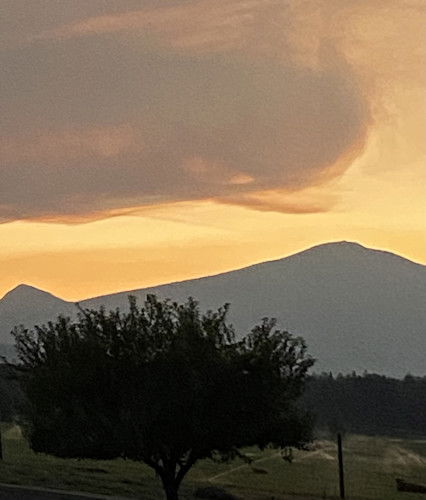DEQ extends air quality advisory for Deschutes, other counties until Wednesday

PORTLAND, Ore. (KTVZ) -- The Oregon Department of Environmental Quality on Monday extended air quality advisories for Deschutes, Jackson and Klamath and issued air quality advisories, Harney, Lake and Malheur counties due to smoke from wildfires in the Oregon Cascades and Northern California.
The following areas are under advisory:
• Deschutes, Jackson, Klamath and Lake counties until at least Wednesday afternoon for heavy smoke impacts.
• Harney and Malheur until at least Wednesday afternoon due to intermittent smoke impacts.
There will also be localized smoke impacts near the Bull Complex fire, likely affecting the areas of Detroit, Lyons and Mill City, and the Middle Fork Complex fire, likely affecting the areas of Fall Creek and Oakridge.
Daily smoke forecasts for Southern Oregon, Klamath Falls and Lane and Deschutes counties are available from the US Interagency Wildland Fire Air Quality Response Program. These forecasts provide estimates of what times of day smoke might be better or worse in those areas.
Oregon OSHA recently adopted new wildfire smoke requirements for employers whose employees will be exposed to wildfire smoke at or above the unhealthy for sensitive groups level (orange on the Air Quality Index). Learn more about OSHA’s new wildfire smoke requirements here.
Smoke levels can change rapidly depending on weather. Check current conditions on the Oregon Smoke Information Blog, DEQ’s Air Quality Index, or by downloading the free OregonAIR app on your smartphone.
Smoke can irritate the eyes and lungs and worsen some medical conditions. People most at risk include infants and young children, people with heart or lung disease, older adults and pregnant women.
Protect yourself and your family when smoke levels are high:
- Stay inside if possible. Keep windows and doors closed.
- Avoid strenuous outdoor activity.
- Use high efficiency particulate air (HEPA) filters in indoor ventilation systems or portable air purifiers. Or create your own air purifying filter by following these instructions.
- Be aware of smoke in your area and avoid places with the highest levels.
- If you have heart or lung disease or asthma, follow your healthcare provider’s advice.
Cloth, dust and surgical masks don’t protect from the harmful particles in smoke. N95 or P100 respirators approved by NIOSH may offer protection, but they must be properly fitted and worn. They won’t work for everyone, especially children. People with heart or lung conditions should consult their doctor before wearing a respirator. Get more information about protecting your health during wildfires.
To find a cleaner air space in your area: Visit 211info.org, click “Find Resources” and search in the Community Resource Database for “Wildfire Related Clean Air Shelters.” Or call 211 or 1-866-698-6155, 24 hours per day, 7 days per week.
School resources: For school districts with students heading back to school, please remember to reference the Public Health Guidance for outdoor activities.